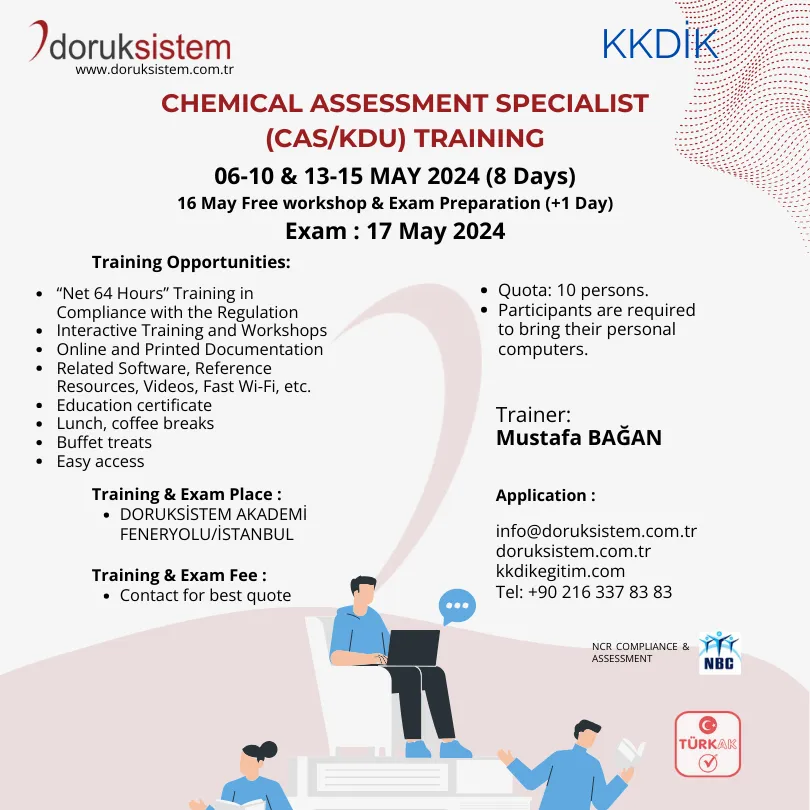Doruk Sistem - KKDIK / TURKREACH
About KKDIK
KKDIK is a regulation of TURKIYE (TR), adopted to improve the protection of human health and the environment from the risks that can be posed by chemicals, while enhancing the competitiveness of TURKISH chemicals industry. It also promotes alternative methods for the hazard assessment of substances in order to reduce the number of tests on animals.

